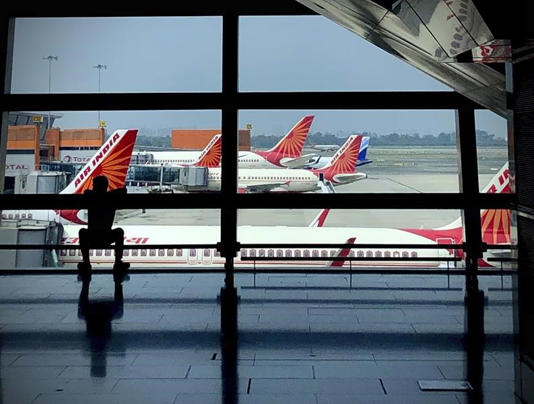
OTTAWA — Canada’s Transport Minister Pablo Rodriguez and the RCMP say an investigation is underway into what they call “threats” against Air India, after an online video warned people not to fly on the airline on Nov. 19.
Rodriguez says in a social media post that the government takes any threat to aviation “extremely seriously.”
He says Canada and its security partners are investigating the “recent threats circulating online,” and his press secretary confirms Rodriguez was referring to comments about Air India.
RCMP spokeswoman Kristine Kelly says police are collaborating with domestic and international partners and “industry stakeholders” in an investigation into the threat against Air India flights.
The original remarks about Air India were made by Gurpatwant Singh Pannun, a U.S.-based organizer of unofficial referendums on Sikh independence, including recent votes in Surrey, B.C.
Pannun says in a video, delivered in a mix of Punjabi and English, that he’s asking Sikhs to “not fly Air India” on Nov. 19, and there will be a “global blockade” against the airline that day.
However, Pannun says in a statement that he’s calling for a boycott of Air India and other businesses that support the Indian government.
“There is no threat,” Pannun says in his statement. “RCMP has every right to investigate a terror threat. And if they consider that calling for boycott of Air India as a civil disobedience … is a terror, then so be it, let them investigate.”
Nov. 19 is the final day of the cricket World Cup in Ahmedabad, India, an event Pannun refers to in the video as the “World Terror Cup.”
A 2005 Canadian government report concluded that the 1985 Air India bombings that killed 331 people were carried out as a result of a conspiracy by Sikh separatists that was “planned and executed” in Canada.
Only one man, bomb maker Inderjit Singh Reyat, was ever convicted.
Pannun is one of the main spokesman for the Sikh independence movement in North America who has been among the leaders of a series of non-binding referendums held among diaspora communities asking for the establishment of an independent state within India.
Another leader of the movement, Hardeep Singh Nijjar, was shot and killed in June outside a Sikh gurdwara in Surrey, B.C.
In September, Canadian Prime Minister Justin Trudeau told the House of Commons that there were “credible allegations” potentially linking India’s government to Nijjar’s killing.
Two rounds of referendum voting have been held in Surrey this year on Sikh independence at the same Gurdwara where Nijjar was killed, drawing thousands of voters from the community.
Source: The Canadian Press
